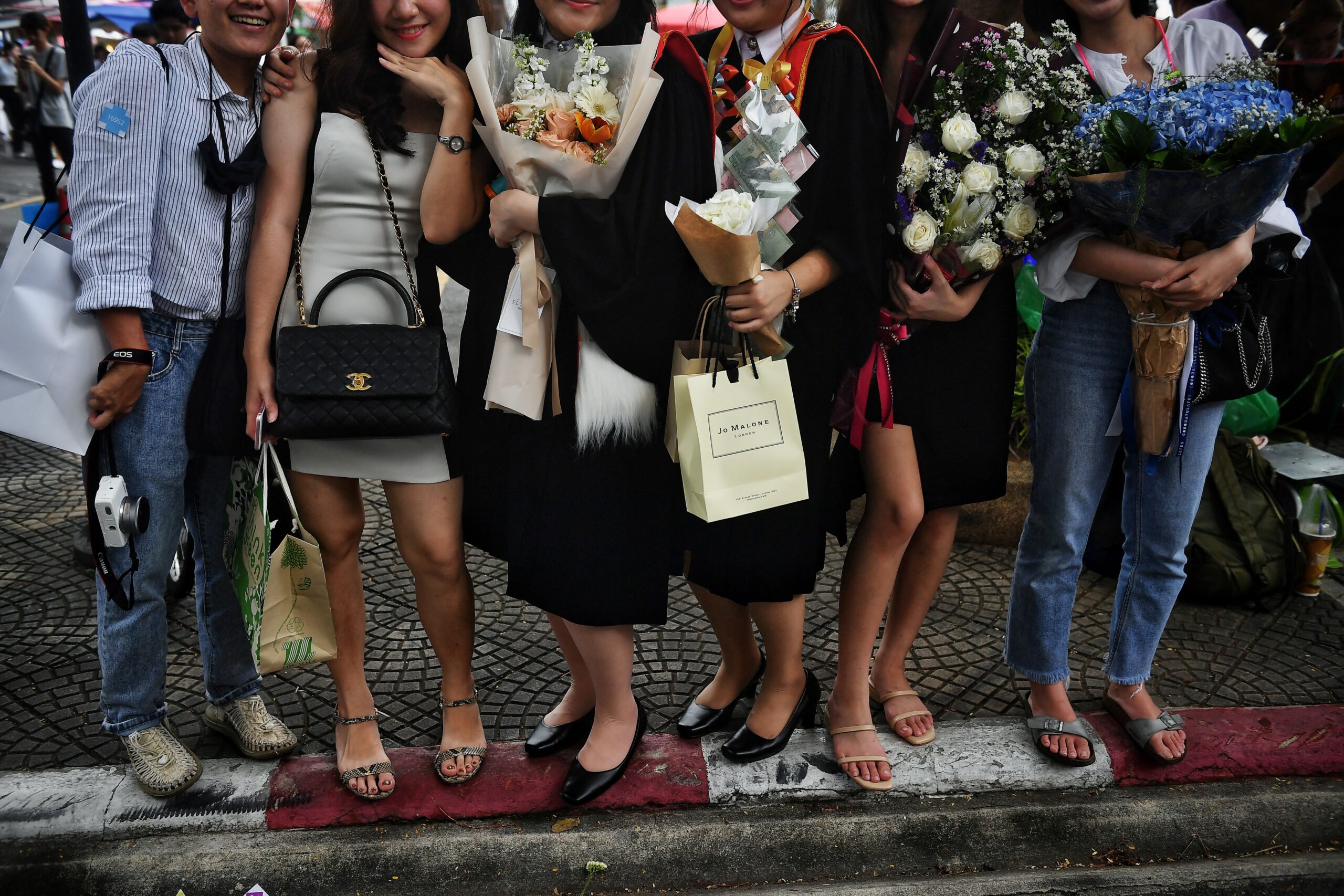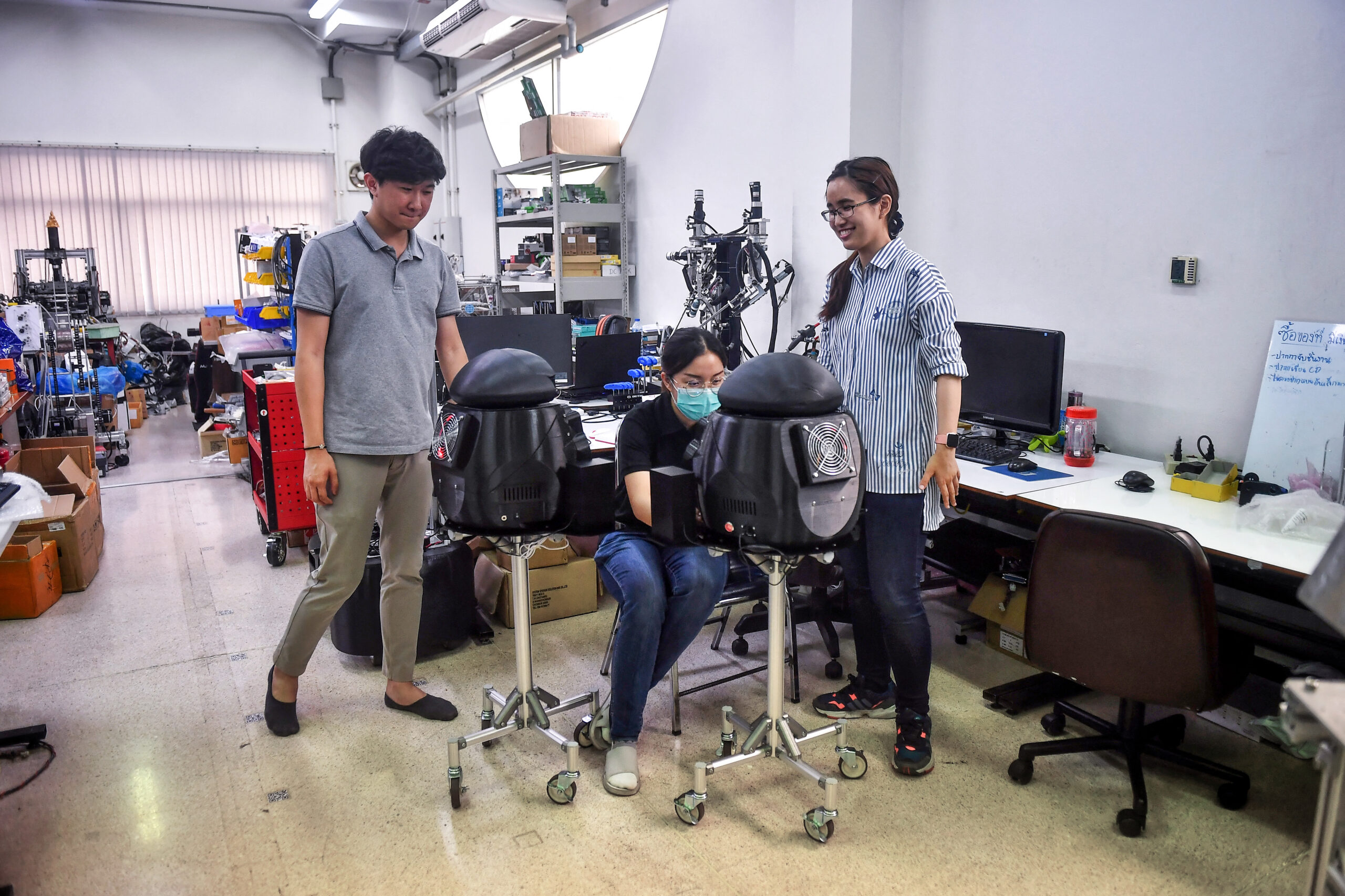Despite being a focus of communities worldwide, solutions to the shortcomings of traditional classroom education remain subjects for experimentation and debate. Many Western countries, which traditionally have been major exporters of academic theories and programs to other parts of the world, continue to recognise their follies.
Thailand’s conventional teaching practices have relied on rote learning for decades, which has led to one-size curricula and methods inherited from the colonial era. The antiquated assessment system of using grades, marks and standardised exams does not produce desired skills and outcomes. The current Thai system has also thrived on a hierarchical social regimen glorified as a sign of the country’s unique culture.
Classroom instruction has been defined as an interactive phenomenon between teachers, students and instructional resources. Sadly, the quality of these three fundamental components in any educational system’s success is seldom thoroughly analysed.
Weaknesses in these traditional components have also led to the creation of elite schools where the cost of a diploma or degree is beyond the reach of ordinary families. Despite an avalanche of literature on all facets of classroom teaching, pertinent costs and benefits of higher education remain unsolved.
Following the regimen in the classrooms is more important than asking questions in Thailand. Consequently, Thai students have mastered the art of ‘cram, jam and pass the exam’ to obtain diplomas or degrees. Thai universities also are handicapped due to their excessive obsession with command, control and government regulations.
Thailand also suffers from an unwarranted obsession with becoming an advanced country without enhancing higher education quality. Over time, these barriers have been solidified and become an impediment to higher education reform in Thailand.
In addition to poor classroom teaching, the research output of Thai universities is meagre. This is evident from the current Google Scholar Citation Transparent Ranking published every six months by Webometrics, a Spanish NGO. The list, which indicates faculty work quality, includes 4,239 universities worldwide and a clear dominance by the United States with 694 universities providing more than 463 million research citations.
The combined output of 38 Thai universities over the most recent data was 1.5 million citations. Singapore, with just ten listed universities, had 6.64 million citations in the same timeframe. Thailand’s low citation rate is indirectly linked to a lack of English proficiency, a significant factor leading to poor advising practices and research output in the country’s universities.
In the 2021 edition of the EF English Proficiency Index, the result of an annual exam administered by an international education firm, Thailand placed 100 out of 112 countries and 22 out of 24 in Asia. Thailand ranked below fellow ASEAN countries Singapore (ranked number 4), Malaysia (28), Vietnam (66), Indonesia (80), Myanmar (93) and Cambodia (97).

For nearly two years during the Covid-19 pandemic, Thai universities also have grappled with a tsunami of digitisation, online learning implementation, new modes of student engagement and employability issues. These developments have been missing links in the Thai system for decades.
The Covid crisis has created ample opportunities to develop digital platforms for Thai students and their families. As online learning becomes normalised, more effort is needed to ensure high levels of student engagement.
Establishing eUniversity and online teaching platforms must go beyond online learning management systems or videoconferencing. There needs to be a complete overhaul of an antiquated system of rote learning.
Thai universities need to develop sophisticated digital tools to explain complex scientific, engineering and business theories. Creative approaches to health and environmental issues need to be internalised. Context-based teaching with real-life examples from the current crisis in the business world is likely to ignite student interest in online learning sessions.
Proper use of artificial intelligence and data analytics can also help cultivate more robust, research-oriented approaches to teaching and learning. The rapid integration of social media, mobile devices, analytics and cloud computing affects education at all levels.
Every service sector tries to realise maximum value, especially during uncertain times for the public. The criteria for Thai families planning to send children to higher education institutions should not be different. Thai universities must adjust curriculum, tuition fees and service charges like any other business to build more agile organisations.
Ensuring employability is one of the primary goals of every university
Students joining universities have expectations, which are crucial for universities to meet and can be achieved if the chasm between industry and academia is effectively bridged. Developing mobile apps or interactive websites can help guide students interested in the various subjects that are available in diploma and degree programmes. These digital platforms can quickly provide suitable courses and specialisation to empower students with the latest competencies and skills.
Ensuring employability is one of the primary goals of every university. Since the onset of the pandemic, the business world has developed new expectations for Thai university graduates. Diplomas and degrees are no longer enough.

Many Thai universities boast high levels of intellectual capital, conflating faculty wisdom, experience and expertise during the global health crisis. The pandemic has created a window of opportunity for universities and business schools to establish renewed rapport with industries and understand the expectations of companies.
More efforts are needed to enlighten students about new expectations and equip them with the latest knowledge and skills to gain a firm foothold in the corporate world. Soft skills, such as communication, are also essential for managing new expectations from industries.
Universities can demonstrate the value of academic programmes by expanding mobile apps and portals like YouTube, LinkedIn and other social media platforms. These vital marketing channels can spread awareness of the expectations that businesses and industries have for graduates.
In short, the business models of Thai universities need tweaking.
There should be a radically different approach incorporating a massive transformation to improve the quality of education and create competent human capital for the post-Covid era. Thailand can learn a lot from the Singapore education and human resource development models.
Globalisation is centre stage in the contemporary world. New and emerging technologies are harnessing the power of the internet. Expanding higher education also requires learner-centricity and drastic improvements in the quality of programmes, courseware and delivery systems.
As Thailand prepares for an expansion of digital learning, the only way forward is addressing connectivity and capacity issues and developing quality courseware content complying with international standards for every section of Thai society.
These significant realities converge at the intersection of school education and higher education, two systems that every country has relied on to ensure economic growth and sustainability for generations. All of that is now in jeopardy. Covid-19 has exposed the flaws of this convergence by displaying the inability of schools to deliver equitable, inclusive and innovative education.
The increasingly volatile, complex and ambiguous situation requires a new educational ecosystem for Thai universities. Through these adjustments, the country will be able to produce agile learners who can adapt to new business environments, expectations and opportunities created by the Covid-19 crisis.
Kuldeep Nagi, Ph.D., is a Fulbright fellow from Seattle currently working at Assumption University, Bangkok.


